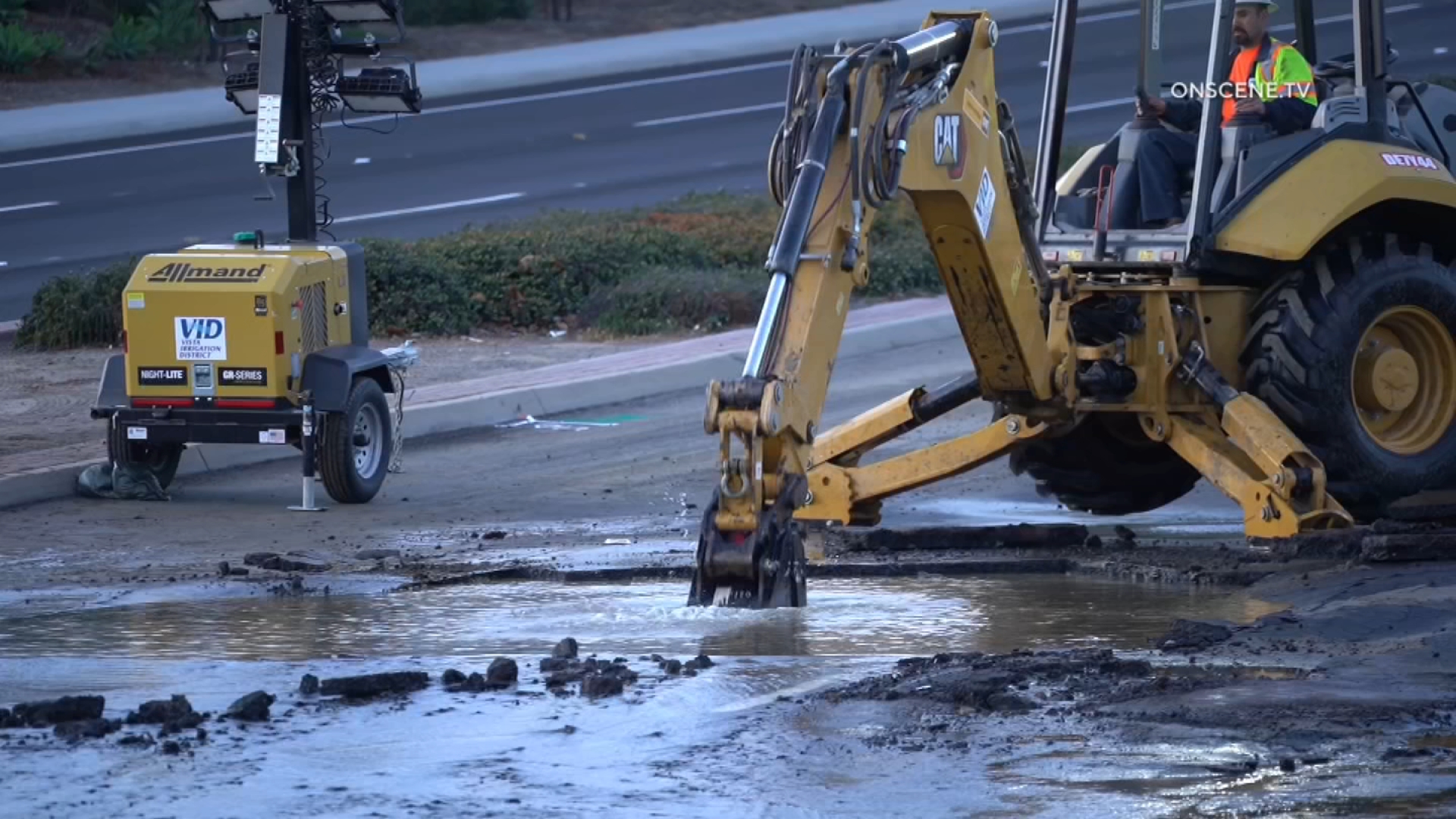The El Cajon Police Department (ECPD) released two video clips Friday showing the controversial deadly police shooting of an unarmed black man that has fueled days of protests in the community in San Diego's East County.
ECPD Chief Jeff Davis said the decision to release the video of the Tuesday shooting of Alfred Olango, 38, was due in part to a concern for public safety.
One video was captured by a witness's cellphone as she worked her shift at a nearby taco shop, while the other comes from one of the shop's surveillance cameras. They show two ECPD officers, Richard Gonsalves and Josh McDaniel, approaching Olango. Olango's sister, wearing nurse's scrubs, can also be seen near the officers in one of the clips.
Olango appears to move in the moment before the shooting takes place. Gunshots are audible in the cellphone video, followed by a woman's piercing scream.
Police have said Olango pulled a 4-inch-long vaping device out of his pocket and held it in a "shooting stance." McDaniel deployed a Taser while Gonsalves fired multiple rounds from his gun at the man, critically striking him.
"For the sake of the wellbeing of the community, the decision was made to show you this video," Davis said, calling the event tragic. "It is that vital, we felt, to present it today to show what we have at this point."
Olango was shot and killed by the officers on Tuesday in the parking lot of a shopping center in the 800 block of Broadway in El Cajon.
According to the ECPD, Olango was reported to be “acting erratically,” walking in and out of traffic, and did not follow orders to remove his hands from the pockets of his pants when approached by two officers.
Earlier this week, Chief Davis promised a complete and transparent investigation into Olango's shooting. He was joined Mayor Bill Wells and San Diego District Attorney Bonnie Dumanis as they released the footage for the first time at an afternoon news conference.
The high-profile case has prompted uproar in the community and several days of protests, some of them peaceful, some violent.
Davis discussed the timeline of those protests and their impact on those who live and work in El Cajon.
He said the protests began peacefully Tuesday hours after the shooting and continued Wednesday morning. That day, the crowd grew to about 400 demonstrators who later blocked intersections and shut down traffic on Broadway.
Davis said some protesters threw bottles at officers and deputies. At one point, a civilian was assaulted in the crowd, and a freelance news photographer had his camera stolen amid the protest.
"These events marked a change in the protesters from peaceful to more aggressive behavior," Davis said.
He said a demonstration Thursday evening grew even more heated, with protesters blocking traffic again. This time, some protesters stopped cars and broke windows. Davis said his department was flooded with 911 calls reporting the disturbances stemming from those Thursday night protests.
Since the shooting of Olango, civil rights leaders, including Rev. Shane Harris of the San Diego chapter of the National Action Network, have pushed for police and the District Attorney's office to release the full video of the incident, saying the single still image of Olango initially released by the ECPD does not tell the full story and, in Harris' words, serves to "shape the narrative" of the police department.
Recently, Dumanis issued new protocols for the disclosure of officer-involved shooting video evidence in San Diego. The new practice states agencies will release video "as soon as it’s appropriate to do so."



